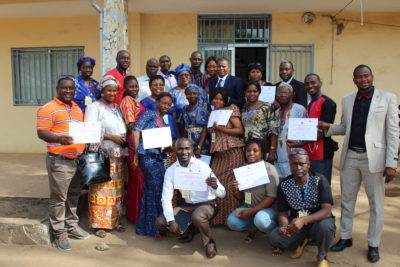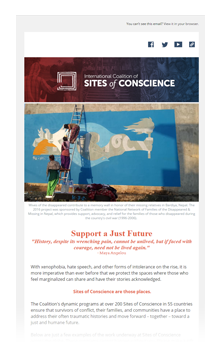 On September 28, 2009, thousands of pro-democracy protesters gathered in Conakry stadium to challenge the candidacy of military junta leader Moussa Dadis Camara, when soldiers opened fire with automatic weapons, which left at least 157 dead and 110 women raped. Some women were forcibly taken to military camps and then enslaved for days. In its December 2009 report, the UN Commission of Inquiry denounces a “crime against humanity”. Seven years after the events, and six years after the beginning of the investigation (2010) conducted by the Guinean Justice System, fifteen leaders of the junta have been charged, but the justice system drags on and many questions remain on the upcoming trial.
On September 28, 2009, thousands of pro-democracy protesters gathered in Conakry stadium to challenge the candidacy of military junta leader Moussa Dadis Camara, when soldiers opened fire with automatic weapons, which left at least 157 dead and 110 women raped. Some women were forcibly taken to military camps and then enslaved for days. In its December 2009 report, the UN Commission of Inquiry denounces a “crime against humanity”. Seven years after the events, and six years after the beginning of the investigation (2010) conducted by the Guinean Justice System, fifteen leaders of the junta have been charged, but the justice system drags on and many questions remain on the upcoming trial.
The Association of Victims, Parents, and Friends (AVIPA) and its partners advocate on behalf of the victims, despite the efforts undertaken by the Minister of Justice to delay the trial. More than ten years after the massacre of September 28, 2009, there still has been no trial. Three victims die each year from complications of their wounds and to this day, those responsible have not gone to court. AVIPA undertakes memorialization initiatives, provides psychological assistance to victims suffering from mental health disorders, urges the authorities to provide compensation to the victims of September 28, 2009, and advocates for trials.
Conakry Guinea

